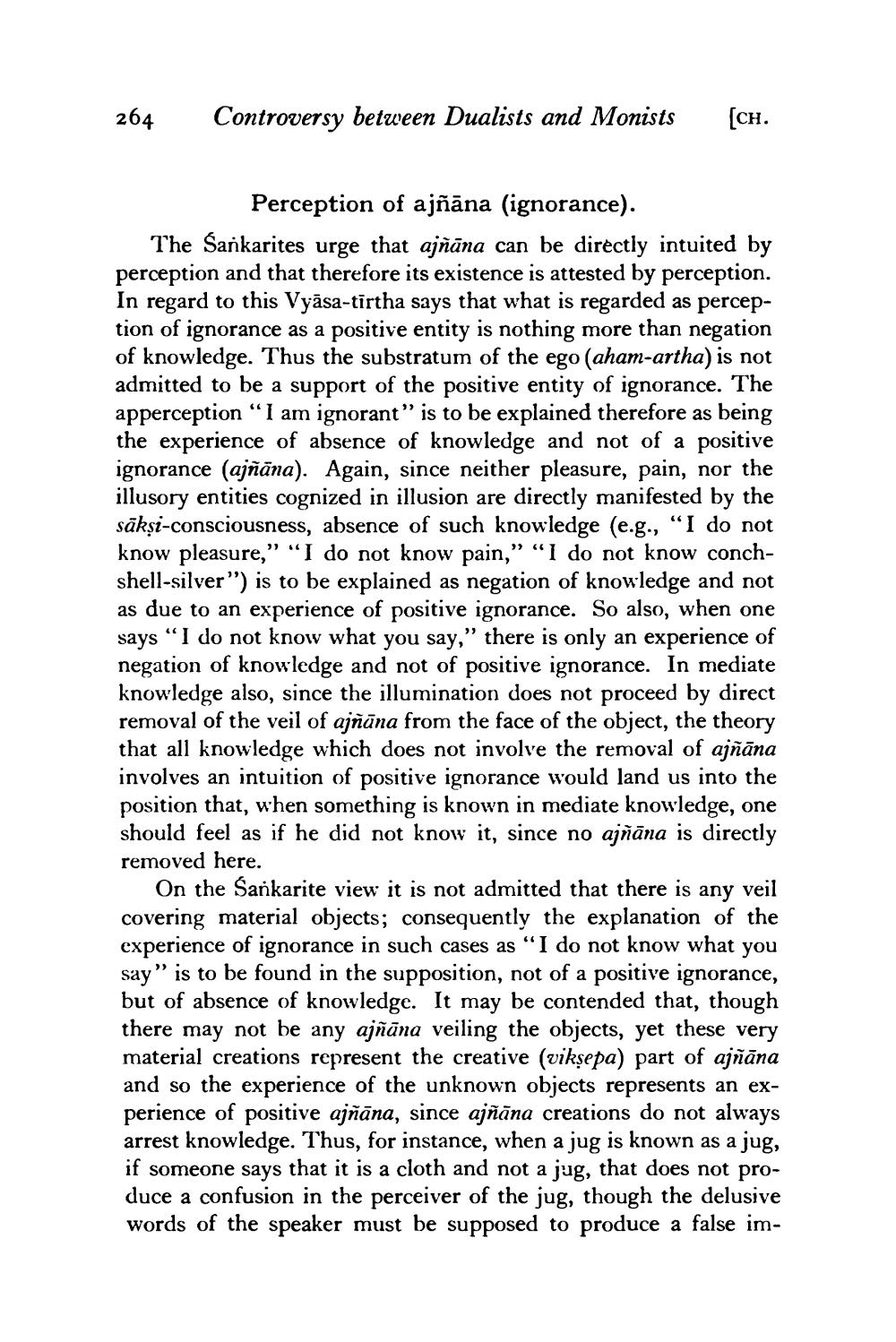________________
264
Controversy between Dualists and Monists
(CH.
Perception of ajñāna (ignorance). The Sankarites urge that ajñāna can be directly intuited by perception and that therefore its existence is attested by perception. In regard to this Vyāsa-tirtha says that what is regarded as perception of ignorance as a positive entity is nothing more than negation of knowledge. Thus the substratum of the ego (aham-artha) is not admitted to be a support of the positive entity of ignorance. The apperception "I am ignorant” is to be explained therefore as being the experience of absence of knowledge and not of a positive ignorance (ajñāna). Again, since neither pleasure, pain, nor the illusory entities cognized in illusion are directly manifested by the sākṣi-consciousness, absence of such knowledge (e.g., “I do not know pleasure," "I do not know pain," "I do not know conchshell-silver”) is to be explained as negation of knowledge and not as due to an experience of positive ignorance. So also, when one says “I do not know what you say, there is only an experience of negation of knowledge and not of positive ignorance. In mediate knowledge also, since the illumination does not proceed by direct removal of the veil of ajñāna from the face of the object, the theory that all knowledge which does not involve the removal of ajñāna involves an intuition of positive ignorance would land us into the position that, when something is known in mediate knowledge, one should feel as if he did not know it, since no ajñāna is directly removed here.
On the Sankarite view it is not admitted that there is any veil covering material objects; consequently the explanation of the experience of ignorance in such cases as “I do not know what you say” is to be found in the supposition, not of a positive ignorance, but of absence of knowledge. It may be contended that, though there may not be any ajñāna veiling the objects, yet these very material creations represent the creative (viksepa) part of ajñāna and so the experience of the unknown objects represents an experience of positive ajñāna, since ajñāna creations do not always arrest knowledge. Thus, for instance, when a jug is known as a jug, if someone says that it is a cloth and not a jug, that does not produce a confusion in the perceiver of the jug, though the delusive words of the speaker must be supposed to produce a false im




